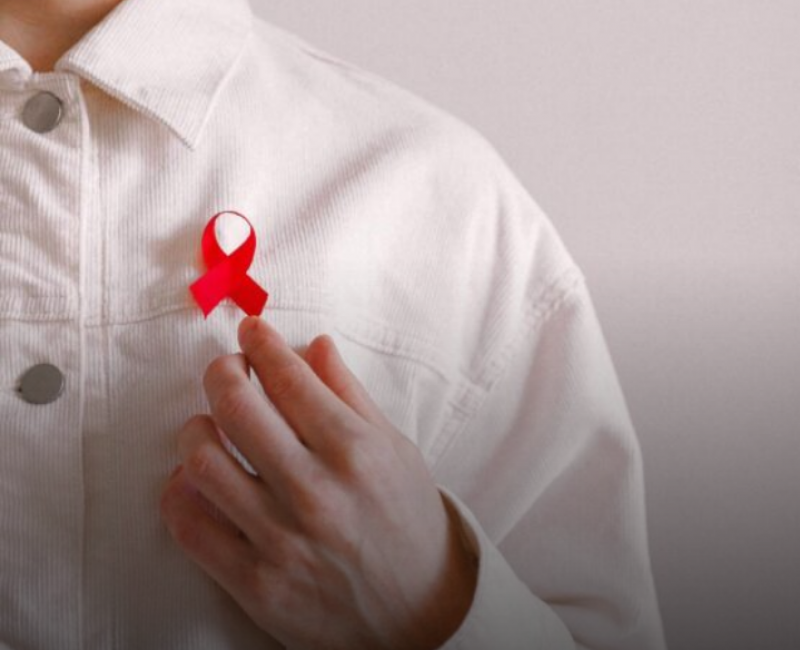HIV/AIDS has been one of the most devastating pandemics in history. It has killed more than 35 million people and infected nearly 80 million since it was identified in 1981.
Despite great strides in prevention and treatment, HIV/AIDS remains a major global health problem.
It is especially true in developing countries, where access to treatment and prevention is limited.
HIV/AIDS has broken up families, left orphans without parents, and decimated whole communities. This ailment does not discriminate; it can affect anyone, regardless of age, race, gender, or sexuality.
There are many surprising facts about HIV/AIDS that people may not be aware of. Let’s take a look.
HIV/AIDS isn’t Limited to Africa:
Many people still live with the misconception that HIV/AIDS is primarily a problem in Africa.
Yes, the disease affects around 7 million people on the continent. But it’s also a significant issue in other parts of the world. For instance, more than two million people are living with HIV in India, followed by 1.8 million in Nigeria. The U.S. has around 1.2 million people living with HIV.
A Chimpanzee Transmitted HIV to Humans:
The HIV pandemic started with a chimp infecting a human. According to scientists, the chimp version of the simian immunodeficiency virus (SIV) is thought to have emerged in west-central Africa in the 1800s. It probably happened when humans hunted and butchered chimpanzees for food and came into contact with the animals’ infected blood.
There’s a Difference Between HIV and AIDS:
The HIV vs AIDS debate has been around since the beginning of the pandemic.
Many people still don’t understand the difference between them, thinking they’re the same. HIV is a virus that attacks the body’s immune system. AIDS is the most advanced stage of HIV infection and can dramatically reduce the lifespan of someone who contracts it.
HIV/AIDS isn’t Just a Gay Disease:
HIV/AIDS isn’t just a gay disease, despite some people’s thinking. In the epidemic’s early days, it was often referred to as a “gay cancer” or “gay plague.”
It is because the disease was initially diagnosed in homosexual men. But HIV/AIDS doesn’t discriminate. The virus may affect anyone, regardless of their sexual orientation. Heterosexuals cause the majority of HIV cases worldwide.
You Can Have HIV and Not Know It:
HIV can go unnoticed for years in your body before causing any problems. It is why it’s so important to get tested regularly, even if you think there’s no way you could have the virus.
Many people infected with HIV don’t know it until it’s too late, and they develop AIDS. In the United States, one in five persons with HIV does not realize it.
You Can’t Get HIV from a Hug:
For years, people have been afraid of contracting HIV through casual contact like hugging or shaking hands with someone who has the virus. But it’s impossible to get HIV from these types of activities. The transmission is only possible by specific bodily fluids.
Geography Makes a Difference:
Living in a certain region of the world impacts your risk of getting HIV/AIDS. In sub-Saharan Africa, around 24% of adults are infected with HIV.
But in North America, only 0.61% of adults are infected. Cities, in general, have higher rates of HIV than rural areas. And countries with unstable political situations or weak health care systems are more vulnerable to HIV/AIDS outbreaks.
The Cure for HIV/AIDS is Still Elusive:
Regardless of all the progress made in the fight against HIV/AIDS, there is still no cure for the virus. There are treatments available that can prolong the life of someone with HIV and improve their quality of life. But there is no cure. Scientists are tirelessly working hard to find one, but it’s been difficult.
Vaccines Don’t Protect Against HIV:
There are vaccines for other viruses, like polio and measles. But there is no vaccine for HIV.
Researchers have sought to develop a safe and effective HIV vaccination for more than two decades. But as the virus changes and mutates, it becomes more challenging to develop an effective vaccine.
HIV Tests are Reliable:
If you’re worried about getting HIV, the good news is that tests are now more reliable than ever.
They can detect the virus in your system soon after infection. So, if you think you may have been exposed to HIV, get tested as soon as possible. The test detects a marker in the blood called p24 antigen that indicates the presence of HIV.
Lesbians Can Get HIV:
Lesbians don’t indulge in sexual activities that can transmit HIV, so they’re often assumed to be at low risk for the virus. But lesbians can get HIV from sharing needles or coming in contact with vaginal fluids or menstrual blood. Avoid indulging in sexual activities if you or your partner has HIV and yeast infection or are on a menstrual cycle. Also, don’t engage in sexual activity with toys.
Sharing Needles and Getting Tattoos Can Lead to HIV:
If you contemplate getting a tattoo, make sure the needles are sterile. Reusing or sharing needles can lead to HIV. The same goes for sharing drug injection equipment. When needles are reused or shared, they can transmit HIV and other diseases like hepatitis C.
Mosquitoes, Tears, Sweat, and Pool Water Can’t Transmit HIV:
Mosquitoes cannot inject blood into your skin, even if they can carry the HIV. This type of transmission has never been reported in any part of the world.
Furthermore, you can’t get HIV from shaking hands, using a toilet, or coming into contact with someone else’s sweat or tears from their eyes. Body fluids like blood, semen, and breast milk can transmit the virus, but saliva and sweat cannot. And you can’t get HIV from swimming in a pool.
There is a Stigma Linked to HIV/AIDS:
The majority of new HIV infections occur among minorities. Black Americans are far more likely to contract HIV than any other ethnic group.
According to the most recent CDC data, the proportion of blacks who are estimated to be infected with HIV was almost eight times that of whites.
Unfortunately, there are still a lot of stigmas attached to HIV/AIDS. People with the virus are often discriminated against. They may be treated as outcasts or lepers. It is one of the reasons why it’s so important to educate people about HIV/AIDS.
Conclusion:
HIV/AIDS is a severe disease that can significantly impact your life. But there are things you can do to protect yourself. Get tested if you think you may have been exposed to the virus. And use condoms during sex to reduce your risk of infection.
Please don’t assume your risk level is low just because you don’t engage in certain activities. Everyone is at risk for HIV/AIDS, and it’s essential to be informed about the disease.


































































































